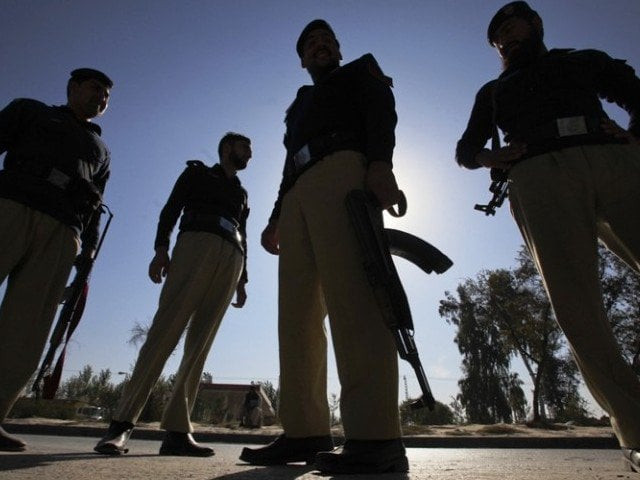Unable to interpret : Arrest rates plummeting in Faisalabad
Routine criminal cases being registered under ATA

Representational photo. PHOTO: FILE
According to the details available with The Express Tribune, the police force was only able to detain 15% of the total suspects in the cases registered under the Anti-Terrorism Act (ATA) this year.
“Cases under the anti-terrorism act are registered in haste due to which most cases are not maintainable in the court,” said Advocate High Court Rana Shahid.
Three suspected al Qaeda terrorists gunned down in Karachi
“Most cases are registered under the Anti-Terrorism Act without taking the opinion of legal experts,” he added.
Full of ambiguities, a large number of criminal cases are routinely lodged under the ATA which usually results in low conviction levels. In 2019 alone, a total of 29 cases were registered under ATA against 381 suspects in Faisalabad. The police force was unable to arrest most of these individuals.
Interestingly, a record number of cases related to murders over personal animosity, routine shootings, and even acid attacks have been registered under the ATA.
Other cases include cases of violence against women including domestic violence, killing and burning to death.
Two cases were also registered under the ATA against lawyers for physical assaulting a judge with a chair and opening fire on the court premises.
“Incidents in which the state’s authority has been challenged or when someone tries to spread fear, the application of the anti-terrorism act is obligatory,” said SSP Operations Faisalabad Syed Ali Raza.
Experts believe the police force in Faisalabad is unable to interpret what constitutes terrorism and consequently, what cases should be registered under the ATA.
Forces stave off Mumbai-style terrorist attack on Gwadar hotel
In another episode that highlights plummeting arrests, a total of 381 suspects were booked under the ATA in 29 cases.
However, the police were only able to make 41 arrests. The majority of the accused obtained bail in the cases before the police could detain them. Enacted to address acts of terrorism and provide speedy trials, the ATA has mostly been misinterpreted due to the wide definition of terrorism in the law, which in most cases allows the inclusion of crimes bearing little or no connection to terrorism.
Earlier this year, during a hearing, Chief Justice Asif Saeed Khosa, remarked that the ATA was full of ambiguities and regretted that routine criminal cases are tried under the law. “Every grave crime is not an act of terrorism,” Justice Khosa remarked.
Published in The Express Tribune, July 29th, 2019.



















COMMENTS
Comments are moderated and generally will be posted if they are on-topic and not abusive.
For more information, please see our Comments FAQ